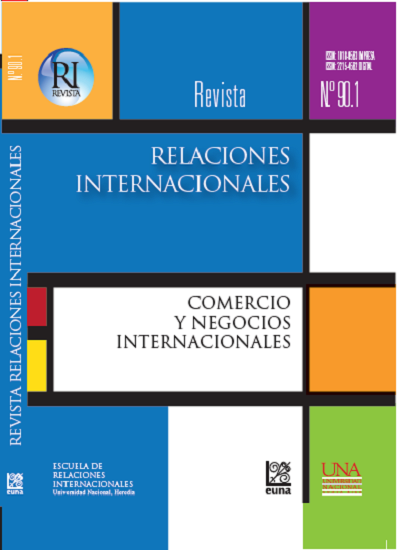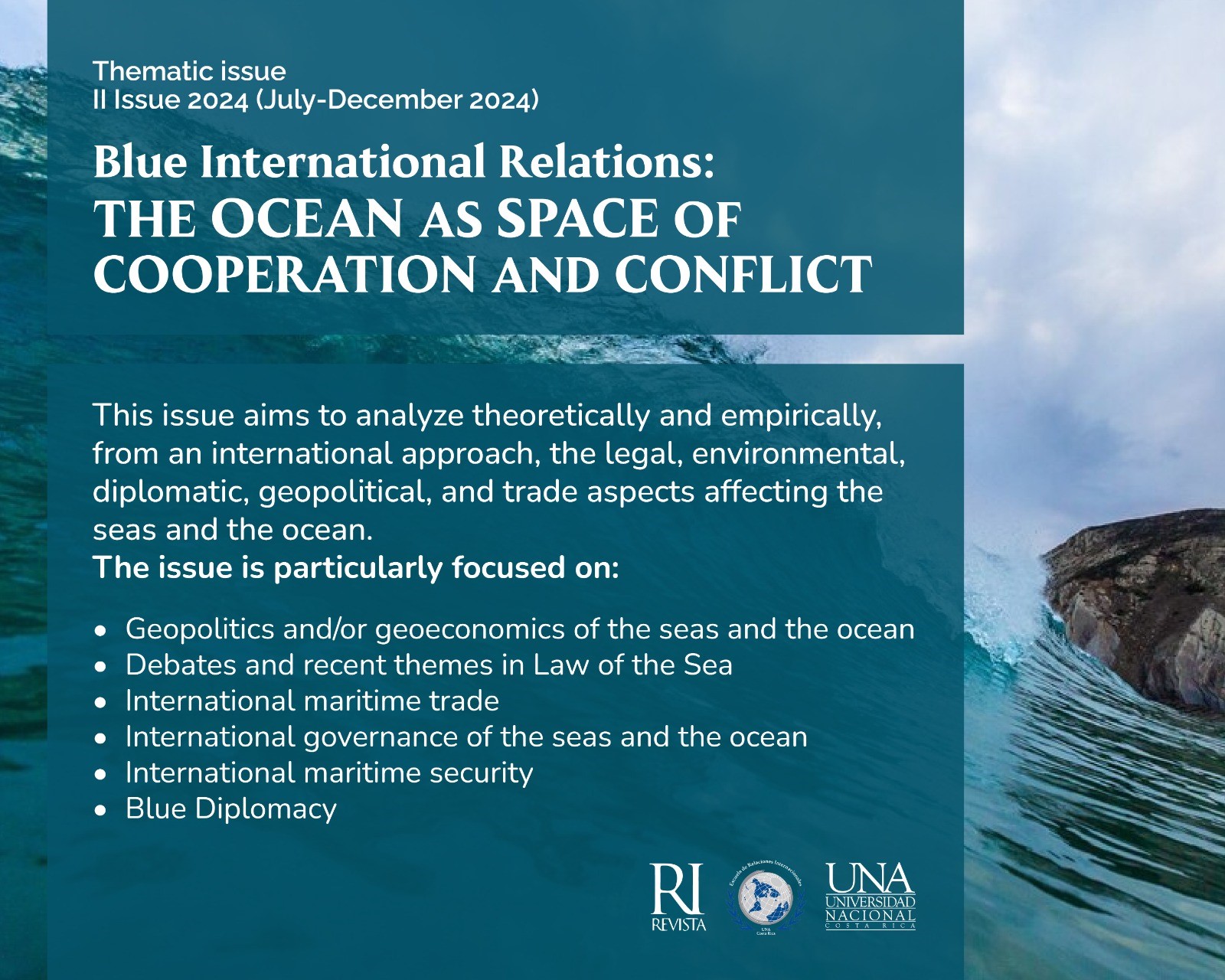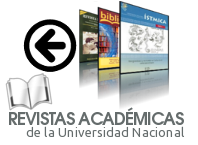Tariff analysis of sensitive products of Costa Rica on the negotiation of Preferential Trade Agreements
DOI:
https://doi.org/10.15359/ri.90-1.1Keywords:
Tariff, Sensitive Products, Customs Policy, International Trade, Trade, Free Trade, Costa Rica.Abstract
Tariff reduction has been the main reason for the negotiation of preferential trade agreements that have had been having a substantial increase nowadays. Despite the fact that the applied tariff have been decreasing according to the world tendencies, the countries still preserve sensitive products without any liberalization. Costa Rica is within this logic, because it has numerous trade agreements and at the same time excludes some products from the preferential treatment. This paper, in the first instance, validates world tendencies regarding the negotiation of trade agreements with the tendencies of Costa Rica. In second place, it compares bound tariffs and the applied tariffs in Costa Rica, determining patterns between their gaps. At last, it identifies variables for the determination of sensitive products regarding the treatment inside the trade agreements signed by Costa Rica.
Costa Rica has a trade agreement were negotiated with tariff reduction interest or not
References
Acosta Roca, F. (2005). Glosario de Comercio Exterior. México D.F.: ISEF.
Bhagwati, J. (2013). Amanece un nuevo sistema. Revista Finanzas y Desarrollo, 50(4), 8-13. Centrum voor Onderwijs Mondiaal (COM). (2010). Glosario. CMO. Recuperado de http://www.cmo.nl/epa-es/index.php/inicio/glosario
Giler Mejía, G., López López, E., Vargas Sánchez, M. y Romero, M. (2010). Análisis de la aplicación de barreras arancelarias a las importaciones ecuatorianas: caso textil y calzado. Guayaquil. Escuela Superior Politécnica del Litoral. Recuperado de http://www.dspace.espol.edu.ec/handle/123456789/13313 (01
ene. 2015).
Krugman, P., Olney, M. y Wells. R. (2008). Fundamentos de
economía. Barcelona: Editorial Reverté.
Ministerio de Comercio Exterior (COMEX). (2014). Asignación de contingentes arancelarios. San José: COMEX.
Ministerio de Comercio Exterior (COMEX). (2015). Importaciones, estadísticas. San José. COMEX. Recuperado de http://www.comex.go.cr/estadisticas/importaciones.aspx
Organización Mundial de Aduanas (OMA). (s. f.). Normas de origen, manual. Bruselas: OMA. Recuperado de http://www.wcoomd.org/en/topics/origin/overview/~/media/304ABD35B23744218E65596E66DFF012.ashx
Organización Mundial de Comercio (OMC). (1994). Acuerdo general sobre aranceles aduaneros y comercio (1947). Ginebra: OMC.
Organización Mundial de Comercio (OMC). (2011a). Entender la OMC. Ginebra: OMC.
Organización Mundial de Comercio (OMC). (2011b). Informe sobre el comercio mundial 2011, La OMC y los acuerdos comerciales preferenciales: De la coexistencia a la coherencia. Ginebra: OMC.
Organización Mundial de Comercio (OMC). (2015a). Función de descarga de aranceles. Ginebra: OMC. Recuperado de http://tariffdata.wto.org/ReportersAndProducts.aspx
Organización Mundial de Comercio (OMC). (2015b). Información por Miembro, Costa Rica y la OMC. Ginebra: OMC. Recuperado de http://www.wto.org/spanish/thewto_s/countries_s/costa_rica_s.htm
Organización Mundial de Comercio (OMC). (2015c). Tariff Profiles Costa Rica. Ginebra: OMC. Recuperado de http://stat.wto.org/TariffProfiles/CR_s.htm
Downloads
Published
How to Cite
Issue
Section
License

Revista de Relaciones Internacionales por Universidad Nacional de Costa Rica está bajo una Licencia Creative Commons Atribución-NoComercial-SinDerivar 4.0 Internacional








1.png)







3.png)
